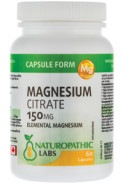Magnesium - 60 V-Caps - Womensense

We're sorry, we no longer carry this item.
Check These out
Suggested, Similar, & Related Products:
Or, Shop our Latest Deals:
Shop Now >- 67mg
- Magnesium (bisglycinate, malate (555 mg of total magnesium bisglycinate and magnesium malate delivering 67mg of elemental magnesium)
Vegetarian capsule (cellulose, purified water, titanium dioxide), microcrystalline cellulose, vegetable grade magnesium stearate (lubricant), silica.
Format
 Veggie Caps
Veggie Caps
60 Vcaps
Dosage
Take 3–6 capsules daily or as directed by a health care practitioner.
Important Information
This product does not contain artificial preservatives, colour or sweeteners; corn, dairy, soy or yeast
- Supports cardiovascular health
- Metabolic syndrome & blood sugar balance
- Maintaining strong & healthy bones
- Restless leg syndrome
- Headaches & migraines
- PMS & menstrual cramps
Related Videos
No Related VideosArticles by a naturopathic doctor.
WomenSense formulates top quality natural supplements to support women’s health. Popular products like AdrenaSense support adrenal health and balancing, BladderSense, Biosil Silica to support collagen production, joints, skin and nails, Black Cohosh supporting Menopause, plus many more! Buy WomenSense to support all your women’s health needs with quality supplements.
Magnesium
Magnesium is an essential mineral for all known living organisms. Magnesium ions catalyze many chemical reactions in the human body, including those in the mitochondria where most of the energy inside each cell of the body is produced. It also plays a role in cell signalling within the body, with wound healing and with enzymes governing the replication of DNA.
Who needs magnesium?
In short, most people...Recently, there has been some debate in regards to the efficacy of magnesium status testing using blood. It is argued that blood testing may not show deficiencies until they are dangerously low because only around 1% of the body's magnesium is found in the blood. It is possible that 50% or more of the population have low magnesium stores despite normal serum levels (a condition called "subclinically deficient"). These deficiencies may have to do with low dietary intake of magnesium, due to poor dietary habits, or loss through the refining and processing of foods. Chronic vomiting or diarrhea, excessive urination and sweating can also deplete magnesium. Foods rich in magnesium include dark leafy vegetables, bananas, avocado, peas, legumes, soy and whole grains.
Deficiency
Without magnesium, the transmission of nerve and muscle impulses is compromised. This can lead to nervous system disorders, muscle weakness or contraction, as well as cramps and spasms. For example, magnesium has been shown to decrease menstrual pain by relaxing the uterine muscles. Magnesium deficiency has also been strongly associated with depression, migraines, ADD, PMS, fibromyalgia, asthma, allergies and type II diabetes. Magnesium loss can be caused by some medications such as diuretics, antibiotics and some anti-cancer drugs. Foods high in fat and oxalic acid interfere with the absorption of magnesium. Oxalic acid containing foods include almonds, chard, cocoa, rhubarb, spinach and black tea. Body requirements for magnesium increase with increased intake of zinc and vitamin D.
Magnesium and Women's Health
In addition to decreasing menstrual cramping, as noted above, magnesium acts in pregnancy as a uterine relaxant that can prevent premature labour. Studies show supplemental magnesium in pregnancy also decreases the risk of birth defects such as cerebral palsy. It has also been researched for its ability to protect against osteoporosis as well as support healthy immune function.
Magnesium and Cardiovascular Health
Given its vital role in nerve and muscle function, magnesium is also an especially important mineral for heart health. Deficiency can cause abnormal heart rhythms, coronary spasms and calcification of the arteries. Studies have also shown that diets high in magnesium significantly reduce the risk of high blood pressure, and this correlation is stronger in women than in men.
Magnesium and Type II Diabetes
Excessive urination is one of the signs of poorly controlled diabetes. Because magnesium is lost in the urine, many diabetics are deficient. Research has been shown that magnesium may be protective against getting Type II Diabetes, and that supplementation may improve blood sugar control in those already affected.
- Reviews
- POST A NEW REVIEW
























